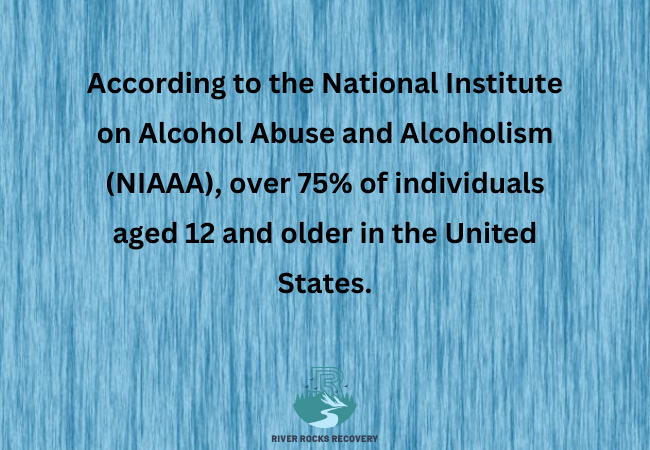For individuals struggling with alcohol addiction, deciding to quit drinking is a crucial step toward reclaiming their lives. However, stopping alcohol use abruptly can lead to withdrawal symptoms that range from mild discomfort to life-threatening complications. Understanding what to expect during alcohol withdrawal and seeking medically supervised detox can make the recovery process safer and more manageable.
This guide will help individuals and their families understand:
- What causes alcohol withdrawal
- Common alcohol withdrawal symptoms
- The stages and timeline of alcohol withdrawal
- The dangers of quitting alcohol abruptly
- The importance of medical detox for a safe recovery
- Post-detox treatment options for long-term sobriety
What Causes Alcohol Withdrawal?
Alcohol withdrawal occurs when someone who has been drinking heavily for an extended period suddenly stops or significantly reduces alcohol consumption. Alcohol is a depressant that slows down brain function and alters neurotransmitter activity. Over time, the brain adapts to alcohol by increasing the production of excitatory neurotransmitters to balance the depressant effects.
When alcohol use is abruptly discontinued, the brain remains in a hyperactive state, leading to withdrawal symptoms such as anxiety, tremors, high blood pressure, and seizures. The severity of these symptoms depends on:
- The duration and intensity of alcohol use
- A person’s overall health and medical history
- The presence of co-occurring mental health disorders
- Previous experiences with withdrawal and relapses
Common Alcohol Withdrawal Symptoms
Alcohol withdrawal symptoms vary in intensity and duration, depending on individual factors such as alcohol consumption levels, health status, and previous detox experiences.
Mild Symptoms (6-12 Hours After Last Drink)
- Anxiety and nervousness
- Headaches
- Nausea and vomiting
- Sweating
- Shakiness or tremors
- Increased heart rate
- Difficulty sleeping (insomnia)
Moderate Symptoms (12-48 Hours After Last Drink)
- Elevated blood pressure
- Confusion and disorientation
- Hallucinations (seeing or hearing things that aren’t there)
- Severe mood swings
- Agitation and restlessness
Severe Symptoms – Delirium Tremens (DTs) (48-72 Hours After Last Drink)
- Severe confusion and disorientation
- Seizures
- High fever
- Severe tremors
- Profound hallucinations
- Irregular or rapid heartbeat
- Risk of coma or death (in untreated cases)
Delirium tremens (DTs) is a medical emergency that requires immediate treatment. If left untreated, DTs can be fatal in up to 37% of cases. This is why seeking professional medical detox is critical for individuals with a history of heavy alcohol use.
Stages of Alcohol Withdrawal: Timeline and What to Expect
Alcohol withdrawal follows a general timeline, though the severity and duration vary for each individual.
6-12 Hours After Last Drink
- Mild withdrawal symptoms begin
- Anxiety, nausea, sweating, and tremors appear
- Increased heart rate and restlessness
12-24 Hours After Last Drink
- Moderate withdrawal symptoms develop
- Increased blood pressure and body temperature
- Hallucinations may start
24-48 Hours After Last Drink
- Peak withdrawal symptoms occur
- Risk of seizures increases
- Anxiety and agitation intensify
48-72 Hours After Last Drink
- Delirium tremens (DTs) may develop in severe cases
- High risk of seizures, confusion, and hallucinations
- Potentially life-threatening complications
72+ Hours and Beyond
- Symptoms start to subside
- Lingering effects such as anxiety, depression, and cravings may persist for weeks or months
How Long Do Alcohol Withdrawal Symptoms Last?
Acute alcohol withdrawal symptoms typically last between 5-7 days, but some individuals experience long-term withdrawal effects, known as Post-Acute Withdrawal Syndrome (PAWS).
PAWS symptoms may include:
- Persistent anxiety or depression
- Difficulty sleeping (insomnia)
- Mood swings and irritability
- Fatigue and brain fog
- Cravings for alcohol
PAWS can last for weeks or months after initial withdrawal, which is why long-term addiction treatment and relapse prevention strategies are essential.
The Dangers of Quitting Alcohol Cold Turkey
For individuals with severe alcohol dependence, quitting alcohol without medical supervision can be extremely dangerous. Alcohol withdrawal symptoms can escalate rapidly, leading to severe dehydration, heart complications, seizures, and death.
Risks of Unsupervised Alcohol Detox:
- Severe dehydration and electrolyte imbalance
- Seizures that can cause injury or fatality
- Delirium Tremens (DTs), which can lead to heart failure or respiratory distress
- Hallucinations and severe agitation
- Increased risk of relapse due to unbearable withdrawal symptoms
Given these risks, medical detox is highly recommended for anyone experiencing moderate to severe alcohol withdrawal symptoms.

How Medical Detox Can Help Ensure a Safe Recovery
At River Rocks Recovery, our medically supervised detox program ensures that individuals withdraw from alcohol safely and comfortably under the care of trained medical professionals.
Benefits of Medical Detox:
- 24/7 medical monitoring to manage withdrawal symptoms
- Medication-assisted treatment (MAT) to ease discomfort and prevent seizures
- IV fluids and nutritional support to prevent dehydration
- Psychological counseling and emotional support
- A smooth transition into an Addiction Treatment Program in Ohio for long-term recovery
During detox, medications such as benzodiazepines, anticonvulsants, and beta-blockers may be used to reduce withdrawal symptoms and prevent severe complications.
Post-Detox Treatment: The Next Steps in Recovery
Detox alone is not enough to achieve long-term sobriety. Once the body is free from alcohol, individuals must address the psychological and behavioral aspects of addiction through comprehensive treatment programs.
1. Partial Hospitalization Program (PHP) in Ohio
- Structured treatment with intensive therapy and medical support
2. Intensive Outpatient Program (IOP) in Ohio
- Therapy sessions several times a week while maintaining daily responsibilities
3. Outpatient Program (OP) in Ohio
- Ongoing therapy and support to reinforce relapse prevention strategies
4. Sober Living and Aftercare Programs
- Provides a safe, structured environment to transition from rehab to independent living
How River Rocks Recovery Can Help
At River Rocks Recovery, we understand that alcohol withdrawal can be overwhelming, but you don’t have to go through it alone. Our programs provide the medical care, emotional support, and therapeutic treatment needed for long-term recovery.
- Safe and effective Medically Supervised Detox
- Comprehensive Alcohol Rehab Treatment in Ohio
- Structured Partial Hospitalization & Intensive Outpatient Programs
- Long-term Relapse Prevention & Aftercare Support
If you or a loved one is struggling with alcohol addiction, don’t wait to seek help. Professional treatment can make all the difference in ensuring a safe detox and lasting recovery.
Conclusion
Alcohol withdrawal can be challenging and, in some cases, life-threatening, but with the right support, recovery is possible. The withdrawal process is different for everyone, and seeking professional medical detox is the safest way to manage symptoms and prevent complications.
Detox alone is only the first step—long-term recovery requires ongoing treatment, therapy, and relapse prevention strategies. At River Rocks Recovery, we provide comprehensive alcohol addiction treatment that helps individuals not only detox safely but also build the skills and support systems needed for lasting sobriety. If you or a loved one is struggling with alcohol addiction, don’t face it alone. Call River Rocks Recovery at 888.905.6281 today for a confidential consultation. Professional treatment can make all the difference.
FAQ About Alcohol Withdrawal and Detox
What are the first signs of alcohol withdrawal?
The earliest symptoms of alcohol withdrawal can appear 6-12 hours after the last drink and may include anxiety, nausea, sweating, tremors, and insomnia. These symptoms often escalate as withdrawal progresses.
How long does alcohol withdrawal last?
Alcohol withdrawal typically lasts 5-7 days, with symptoms peaking around 48-72 hours. However, some individuals experience Post-Acute Withdrawal Syndrome (PAWS), which can last for weeks or months.
What is the most severe symptom of alcohol withdrawal?
The most serious condition is Delirium Tremens (DTs), which can cause seizures, severe confusion, hallucinations, high fever, and heart complications. Without medical treatment, DTs can be fatal.
Is it safe to quit alcohol cold turkey?
For heavy drinkers, quitting alcohol abruptly can be dangerous and may lead to seizures, heart issues, or DTs. A medically supervised detox is the safest way to withdraw from alcohol.
What medications help with alcohol withdrawal?
Medications such as benzodiazepines, anticonvulsants, beta-blockers, and IV fluids may be used in a detox setting to manage withdrawal symptoms and prevent complications.
Can I detox from alcohol at home?
Mild withdrawal may be managed at home with medical guidance, but moderate to severe withdrawal requires professional detox to prevent life-threatening complications. Always consult a medical professional before attempting detox.
What happens after detox?
Detox is the first step in recovery. To maintain sobriety, individuals should enter a rehab program, such as:
- Partial Hospitalization Program (PHP) for intensive therapy.
- Intensive Outpatient Program (IOP) for flexible treatment.
- Outpatient Program (OP) for long-term recovery support.
- Sober living programs for a structured, alcohol-free environment.




























